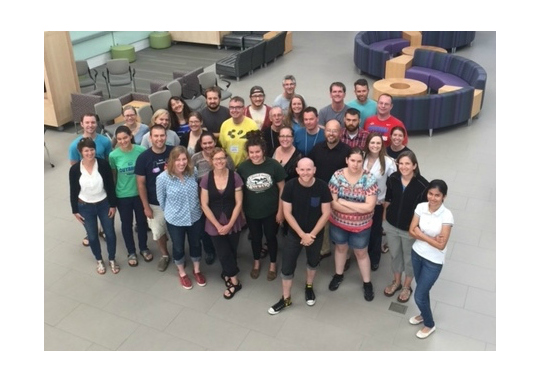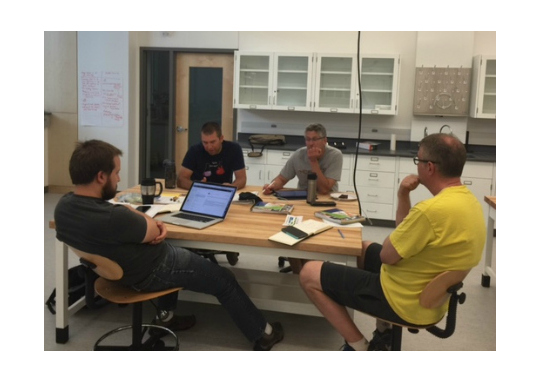The first annual Science Initiative Summer Institute (SI2) was held June 7th through the 12th, 2016. it was considered a massive success by mentors, faculty and graduate students alike. The diversity and collaborative nature of the group led to unprecedented articulation, collaboration and innovation beyond that anticipated/predicted. Fellows described the experience as being "transformational", "jump starting [their] active learning knowledge" and inspiring them to help other instructors. Fellows presented their plans for launching innovative curriculum during the 2016-2017 academic year and with continued LAMP support, they look forward to spreading the ripples of their revolutionized teaching and learning environments.
2016 - 2017 Faculty and Graduate Student Fellows
-
David Anderson (Chemistry)
-
Morgan Balabanoff (Chemistry)
-
Brian Barber (Biodiversity Institute)
-
Jamie Crait (Life Sciences / WRSP Director)
-
Ellen Currano (Botany)
-
Melissa Gelwicks (Chemistry)
-
Jesse Hinshaw (Molecular Biology)
-
John Hoberg (Chemistry)
-
Abigail Hoffman (Botany)
-
Joshua Holmes (Molecular Biology)
-
Elliott Hulley (Chemistry)
-
Hayley Lanier (Zoology & Physiology)
-
Michele Larson (Zoology & Physiology)
-
Brian Leonard (Chemistry)
-
Hilary Madinger (Zoology & Physiology)
-
Jaya Maithil (Physics & Astronomy)
-
Michelle Mason (Physics & Astronomy)
-
Kali Nicholas Moon (Botany)
-
Chris North (Botany / Life Sciences)
-
Kristopher Parker (Molecular Biology)
-
Jonathan Prather (Zoology & Physiology)
-
Sean Stettner (Molecular Biology)

The 2016-17 Fellows included 22 faculty and graduate students across UW STEM fields.

Elliott Hulley, Dave Anderson, Brian Leonard and John Hoberg of the Chemistry Department work together to develop instructional strategies during the 2016 Summer Institute on Active Learning in the Sciences
Testimonials:
“Overall, the science initiative fellowship has reawakened my passion for teaching and made me more aware of how much I missed the creative experience of designing curriculum.”
“The idea of allowing students to develop their own opinions and ways to approach problems, with help in groups or individual, was eye-opening…The group activities negate the professor-student dichotomy, which drives students’ critical thought, promotes metacognition, and can enhance the classroom experience.”
“I implemented many more active learning techniques during the lecture period and saw an increase in student response and attentiveness. It was great to have immediate (especially positive) responses to my new classroom techniques.”

